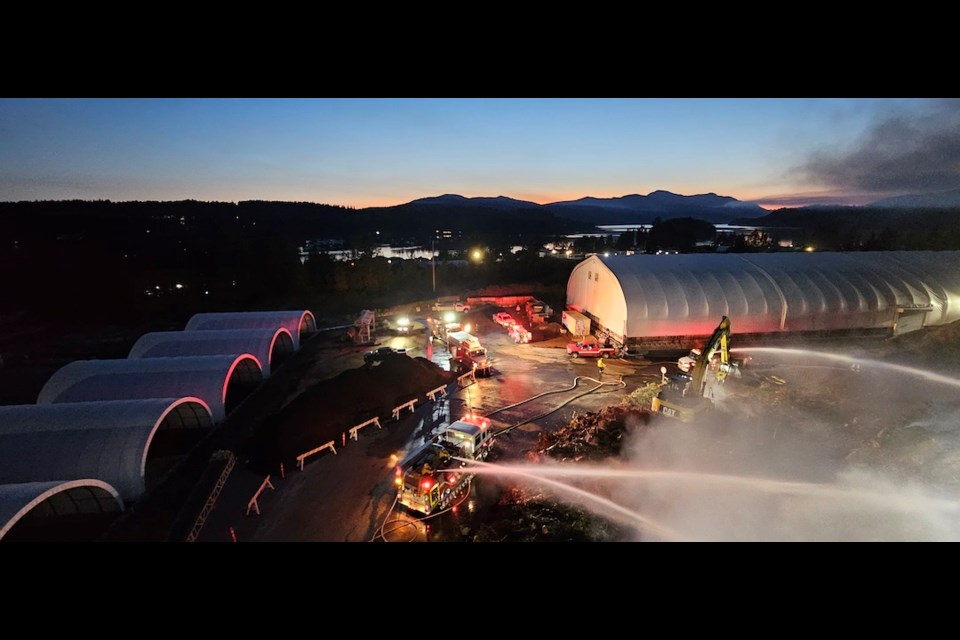Three Sunshine Coast fire departments responded to a mulch fire at Salish Soils’ Schetxwen Road facility in East Porpoise Bay on July 16.
The fire is suspected to have ignited through a combination of heat generated by decomposing green waste and high temperatures with low humidity – and is still being investigated, said a Sechelt Fire Department press release.
At approximately 8 p.m. Tuesday evening, Sechelt Fire Department was alerted to the fire by RCMP and arrived on the scene to see one large pile of green waste completely engulfed in flames. Crews also noted a nearby pile beginning to ignite.
With assistance from the Roberts Creek Volunteer Fire Department and Halfmoon Bay, a total of 30 firefighters attended the blaze, with no injuries or property losses reported.
“This was a deep-seated fire that required a lot of firefighters to contain it.” Sechelt fire deputy chief Steven Achterberg said in the release. “I called for help, and I got it.”
Using six apparatuses and assisted by two pieces of heavy machinery operated by facility staff, crews fought the flames for three hours, eventually containing the fire.
Crews used “master” streams, which Achterberg described as large-diameter, truck-mounted “water cannons” used to extinguish large fires.
Although it has been a couple of years since they’ve seen one, Achterberg said fires like this aren't “extremely uncommon,” in locations like this, especially when temperatures are high and confirmed none of Salish Soil’s equipment or property was lost.
"SCRD water treatment plant staff worked into the night to ensure there was no interruption to community water supply during the fire. Water staff were in communication with fire personnel on scene," said Aiden Buckley SCRD communications manager. "The Church Road Well Field and the Chapman Water Treatment Plant ran at full capacity to ensure that reservoir levels in the Regional Water Service were maintained while fire suppression efforts were underway."
Speaking to how fires like this are the result of a natural process, Achterberg said the best practice this time of year at facilities like this is constant monitoring paired with quick action.
Jordan Copp is the Coast Reporter’s civic and Indigenous affairs reporter. This reporting beat is made possible by the Local Journalism Initiative.



